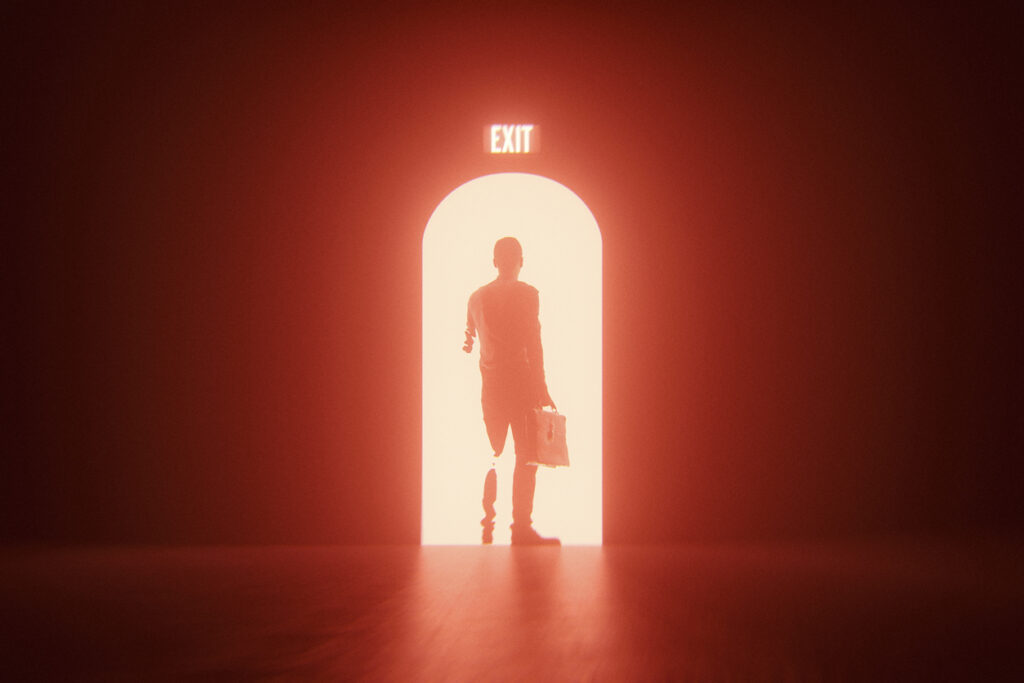Before the pandemic deluged us, life seemed so much easier, in so many ways. To make sense of our organisational environment we demanded simple answers to the relentless onslaught of complex problems.
One ever-present, simple trope was the ‘future of work’ narrative. Endlessly lying over the ever-moving horizon, it offered a wonderful opt-in feature for many organisations and their HR teams to use, like a guilty pleasure before returning to prop up the old toxic workplace habits and rituals that should really be housed in the ‘museum of work’ instead.
What we need at this time is a renaissance movement not a DeLorean time machine.
And then of course there’s our good friend ‘HR digital transformation’, with its 117,000,000 Google search results, which has unfortunately morphed into the Emperor’s new clothes, facilitating something that has been rolled up and simply branded a must-have for ‘the future of work’. It has given scope for many HR technology tool sellers to submit their product as the simple fix, tool, fad and quick solution that makes your organisation ‘future proofed’.
‘Get it now, whilst stocks last,’ says an Enterprise HR Technology sector with a current market value of $400 billion globally and growing.
You see the problem with labelling something is that it restricts the framing of the issue to such a narrow and simplistic extent that we find ourselves veering off course as a consequence. The reality is that instead of some eternal future-leaning narrative we’ve been grappling constantly with the nature of the organisational construct since the mid-1970s and we are still fumbling around like an adolescent on his first teenage date in 2020. What we need at this time is a renaissance movement not a DeLorean time machine.
Accepting our complex reality
So, the 70s you say. Back then, we saw the paradigm of Ford and Taylor’s enduring (and effective) management science die forever after a decent innings, lasting decades. The game changer was a realisation (among, sadly, too few organisations) that complexity now reigned – because the market we now served was increasingly incapable of prediction or control (think AirBnB and its impact on the traditional travel industry).
We should also have accepted the belief that people could not be predictably managed, despite our organisational construct being designed around limiting their potential evil, another lazy enduring trope from the 20th Century.
The best we can do is accept this complexity as reality and prepare our organisations to buffer the external forces to get the very best out of people. As we are decades late in coming to realise that our businesses are ill-shaped, hierarchical pits of misery for the command and control addicts, can we no longer delay standing down the future of work trope once and for all and fix today’s long-running problems?
Yesterday’s business models won’t solve today’s problems
The Covid-19 disaster has demonstrated again, if it needed to be reinforced, that command and control business models, thinking and associated social systems should be, much like the virus, destroyed for the sheer misery they bring to people.
Adding a veneer of machine respectability to the traditional HR product set doesn’t make it any more relevant to solving today’s world problems.
In too many places, we’re still stuck with the annual appraisals (how many of you had ‘deal with a global pandemic’ in your draft?), the siloed job structures (who survives a ‘not my job’ mentality today?), the individual bonus plans (thought we’re all in this together folks?) and the countless policies and frameworks that have limited the potential of well-meaning, talented people within the business. This thinking is no longer sustainable. It hasn’t been for decades.
Here and now we have an opportunity emerging to consider, influence and ideally deliver on a belief system for our organisations that has been within our grasp for decades.
Giving humans the meaningful work
Today we can prepare our organisations to withstand the conveyor belt of turmoil by organising for complexity and dialling up the previously understated ‘soft skills’ as the means to do this via value-creating networks of people.
With the machine better placed to deal with established rules and repetition in the ‘complicated’ domain of work, humans are left with the ability to solve meaningful organisational problems – if only we can cleanse our environment of the redundant systems thinking holding us back.
And don’t we have some belters of problems to solve in the real ‘future of work’! Organisational resilience in the face of unplanned black swan events; tapping into the benefits of robotic automation; the tasking up of work and the changing look of the labour market in a repurposed, and hopefully fairer, social contract. No machine, no magical AI, no wizard behind the curtain will solve these but us, using our collective brainpower to do so.
[cm_form form_id=’cm_65a14c3f5da64′]
Ushering in a new belief system
So whatever happens at the end of this unprecedented yet temporary crisis – with its dramatic backdrop helping prove the case for trusting distributed workforces to be productive – it can’t be a return to the status quo nor the unattainable pursuit of the ‘day after tomorrow’ rhetoric that summarises the future of work narrative.
Here and now we have an opportunity emerging to consider, influence and ideally deliver on a belief system for our organisations that has been within our grasp for decades. It will clearly have a place for a less dramatic use of exponential technology, will be organised on a decentralised basis and have broad principles in place underpinning a fair and trusting relationship with its highly talented, well-intentioned people of all angles.
It may come across as more boring and less sensational conference fodder, but it just might be a more productive use of our time when the lockdown ends. And for that we should all be grateful.






